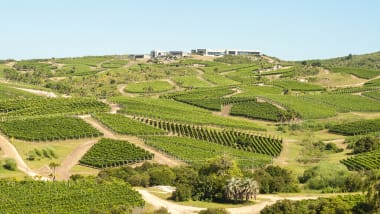You must log in with your username and password in La Champagne Viticole magazine to access this content. Your ID and password were communicated to you by email when you activated your subscription to lachampagneviticole. fr.
Céline Abidon is an enological engineer in it? French Institute of Vine and Wine.
How is public and/or private research critical to combating diseases in the vineyard?
The decline of the vine is generalized throughout the French vineyard and is the result of complex phenomena, often poorly understood, either because these avenues of research have been little explored or because scientific methods do not allow it. Without effective means of control, winegrowers are helpless and it is essential to support research efforts. The wine industry has decided to declare the decline of the vineyard as a national priority, with the intention of favoring a systemic approach working on reducing the effects and not just understanding the causes. It is also about having an interdisciplinary approach in which agronomists, economists, pathologists, geneticists work together. The viticultural profession represented by the CNIV, with the support of FranceAgriMer, the Ministry of Agriculture, the French Institute of Vine and Wine have come together to implement the National Plan for the Deterioration of the Vineyard. General philosophy, collective governance method, scientific approach, budget commitments – a real battle plan has been launched. Furthermore, financial means depend on what is at stake. In total, 10. 5 million euros are committed over 3 years (2017/2020), under equal conditions between the State and the profession.
What are the brakes you see in your research?
Rather than obstacles to research, it is rather difficulties in understanding this complex phenomenon that should be highlighted. Because regressive death is not only linked to wood diseases, but is the result of a set of attacks from biological, climatic and technical factors. Therefore, it is about different forms of dieback that cause a drop in yield and premature death of the vine. We are not facing a single cause. More than 70 factors have a more or less direct impact on the decline of the vine. They are biological (viruses, pests), physical (water stress) or linked to cultural practices (pruning, disease management, quality of plant material). Stopping the decline of the vines means acting against all these factors to preserve the vitality and longevity of the vines and, therefore, in the long term, the quality of the French vineyard. That is why it is important to have a systemic and interdisciplinary approach. The National Vineyard Deterioration Plan responds to the need for the sector to mobilize to ensure the sustainability of the vineyard and the competitiveness of the businesses. And the stakes are high. Let us remember that viticulture employs 558,000 people, it is the second French export sector with 7,800 million euros, behind aeronautics, it extends its geographical footprint in 66 departments and contributes almost 16% of the wine available on the planet. “Mobilize, innovate, adapt” constitutes the triptych of the collective commitment of the entire wine industry for a healthy, sustainable and long-lasting vineyard.
What are the prospects for combating vine wood diseases?
Currently, the results are emerging from the results of work started several years ago. But in the face of these complex diseases, a solution will not be satisfactory. Nine research projects are currently underway. The perspectives refer both to curative control (with the arrival of new fungal products in particular) and to preventive measures: innovation in pruning and vineyard management practices, innovations in nurseries with plant material. The Vitimage project led by the IFV with the support of the Montpellier CNRS and the Interprofessional Committee of Champagne Wine, seeks to understand, for example, the spread of pathogens responsible for wood disease through images (X-rays, etc. ). This work will result in solutions to improve prevention, plant quality and control of biological risks associated with regressive death. The Eureka project, led by the University of Haute-Alsace, offers a multidisciplinary approach to combat wood disease: curative approach through new plant endotherapy techniques, new strain architecture as already experienced during the fight against phylloxera , study of the impact of the graft and identification of good cultural practices. Many concrete results, transferable in the vineyards, are expected in the coming years from this innovative work.

